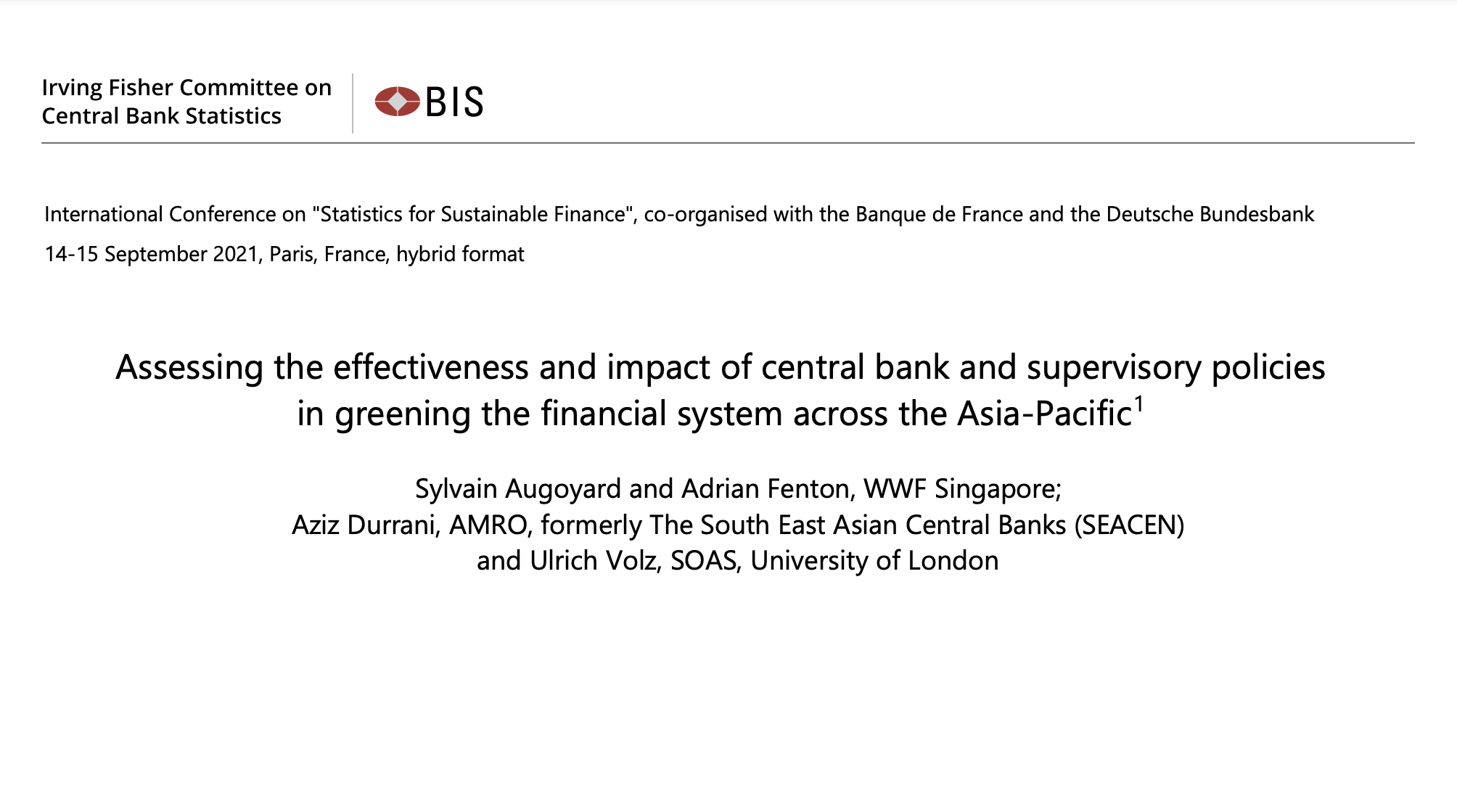Assessing the effectiveness and impact of central bank and supervisory policies in greening the financial system across the Asia-Pacific
Assessing the effectiveness and impact of central bank and supervisory policies in greening the financial system across the Asia-Pacific
This article presents the findings from the second Asia-Pacific (APAC) Central Bank Sustainability Survey, shedding light on (i) details of sustainable finance measures that have been implemented by central banks and financial supervisors (CBFS) in the region; (ii) the rationales and processes underpinning their adoption; (iii) whether and how CBFS assess the effectiveness, efficiency, and equity of adopted measures; and (iv) the capacity building needs of CBFS in APAC.
A growing number of CBFS across APAC are paying due attention to climate change and other environmental risks. Many have already started to develop or implement various sustainable finance measures, or are planning to do so going forward. For the time being, most activities pertain to their own governance and strategy as well as micro-prudential supervision. Most CBFS plan to scale up their sustainable finance activities across a range of areas. While the majority of CBFS have started to assess the effectiveness of the implemented measures, a more systematic assessment is held back by a self perceived lack of expertise and data availability constraints. CBFS cited a number of training needs with respect to achieving climate and environmental objectives with respect to their institutional mandates.
Authors
Publisher
Bank for International Settlements
Published October 15, 2021



